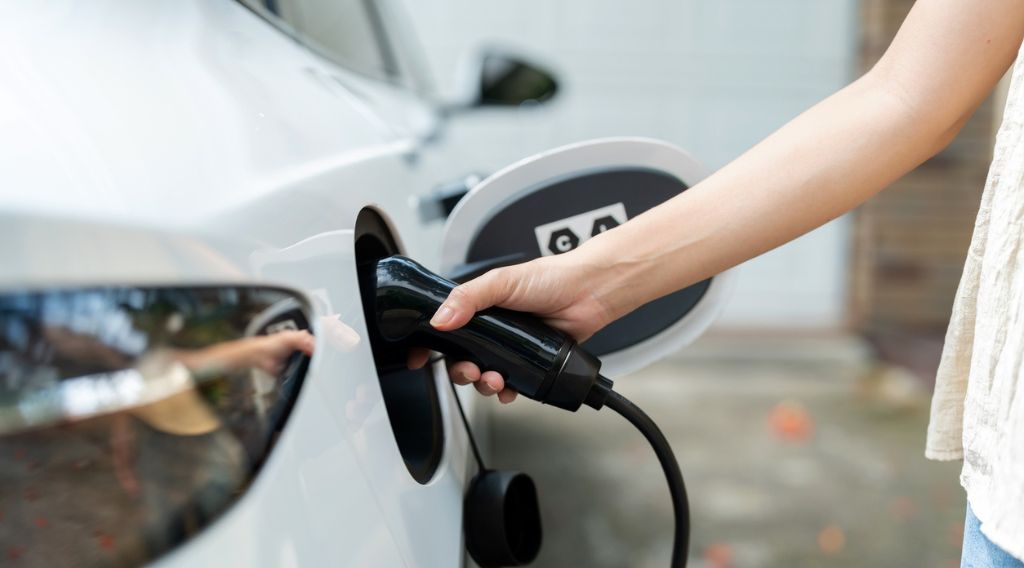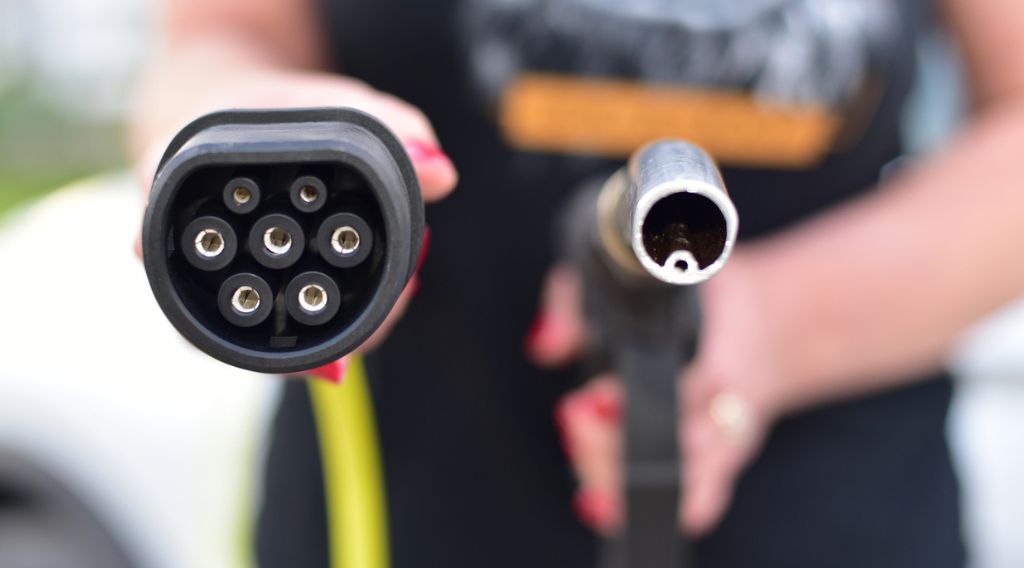
Only 10 percent of existing fast-charging stations meet federal funding requirements
FEBRUARY 1, 2023, MINNEAPOLIS—The US needs at least 1,104 additional new fast-charging electric vehicle (EV) stations as part of a nationwide network able to support seamless long-distance EV travel. That’s more than double the charging stations that currently meet minimum federal funding requirements, according to a new road map and analysis from Carbon Solutions and the Great Plains Institute (GPI).
Of the nation’s 4,943 existing public, non-Tesla fast chargers, there are 509 that comply with the Federal Highway Administration’s National Electric Vehicle Infrastructure (NEVI) Formula Program. At least 1,104 additional new NEVI-compliant charging stations would be needed to ensure all currently designated EV Alternative Fuel Corridors and non-designated interstates could comply with NEVI guidelines, the analysis found. This would represent a minimum range of $794 million to $1.3 billion in estimated equipment installation costs.
“With increased federal funding available for expanding charging access, we hope this analysis is a useful resource for state governments, private sector charging companies, utilities, site hosts, and other key parts of the EV charging ecosystem,” said Brendan Jordan, GPI’s vice president of Transportation and Fuels.
Carbon Solutions developed a sophisticated and novel network-tracing analysis for the United States EV Fast-Charging Corridor Road Map using real driving distances to measure true access to existing and proposed charging stations.
“This novel geospatial analysis has given us a wealth of new data and insight into how best to design our nation’s next-generation charging network and offered a far-clearer road map for making investments in a climate-friendly transportation future,” said Dane McFarlane, director of Climate and Policy at Carbon Solutions.
There is also an interactive road map allowing the user to better explore the current and proposed network of chargers.
“A foundational build-out of EV fast-charging infrastructure is critical to providing drivers with the confidence they need to make the switch to an EV,” said Kellen Schefter, senior director of electric transportation at the Edison Electric Institute. “This road map provides the clearest view yet of the gaps in the national EV fast-charging network. We are eager to use this tool with our member electric companies, as well as with states and other stakeholders, as we work together to plan for the infrastructure needed to provide reliable and accessible EV fast charging.”
“To speed the transition to electric vehicles, we must build a national network of affordable and accessible chargers to ensure that more people can benefit from EVs,” said Samantha Houston, a senior vehicles analyst for the Union of Concerned Scientists. “The United States Fast-Charging Corridor Road Map is a valuable tool to advance the build-out of that national network. The detailed yet accessible information the report provides is incredibly timely to inform strategies and decision-making at all levels, from community conversations on station siting to state planning to interstate coordination.”
The NEVI program was established under the bipartisan Infrastructure Investment & Jobs Act to fund and support the development of a comprehensive fast-charging network along key national travel corridors.
To be NEVI-compliant, EV charging stations must include at least four ports with connectors capable of simultaneously charging four EVs at 150 kilowatts (kW) each, with a total station power capacity of 600kW or more. They must also be located within one travel mile of a designated EV Alternative Fuel Corridor. Compliant stations must be spaced no more than 50 miles apart along a designated corridor for the corridor to be certified as NEVI-compliant.
The NEVI program provides $5 billion over five years in dedicated funding for states to strategically deploy public EV charging infrastructure supporting long-distance EV travel. To access the NEVI Formula Program funds, each state must submit an EV infrastructure deployment plan to be approved by the Federal Highway Administration.
The Carbon Solutions and GPI road map focused strictly on the physical and geographic requirements for charging infrastructure build-out as outlined in the NEVI program guidance. Further analysis should closely examine the equity considerations and local context for individual station planning, specifically to ensure that NEVI program benefits help disadvantaged communities.
About Carbon Solutions LLC
Carbon Solutions LLC is a low-carbon energy startup using cutting-edge R&D and software & services to address energy challenges, including carbon capture and storage, geothermal energy, wind energy, biofuels, energy storage, and the hydrogen economy. Carbon Solutions aims to accelerate low-carbon energy infrastructure development in the US. The Carbon Solutions business vision is focused on three integrated pillars: research and development that advances low-carbon energy science, software development that generates unique tools and data, and services that apply our R&D and software to address emerging energy challenges for our clients. Learn more at carbonsolutionsllc.com.
About the Great Plains Institute
A nonpartisan, nonprofit organization, the Great Plains Institute is transforming the energy system to benefit the economy and environment. Working across the US, we combine a unique consensus-building approach, expert knowledge, research and analysis, and local action to find and implement lasting solutions. Our work strengthens communities and provides greater economic opportunity through creation of higher-paying jobs, expansion of the nation’s industrial base, and greater domestic energy independence while eliminating carbon emissions. Learn more at www.betterenergy.org.
Media Contact
Darren Goode
(202) 550-6619


